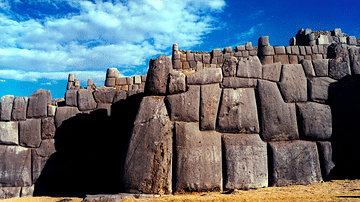Review

| Rating: | |
|---|---|
| Title: | Uncovering the Culture of Ancient Peru (6) (Archaeology and Ancient Cultures) |
| Author: | Alix Wood |
| Audience: | Young Children |
| Difficulty: | Medium |
| Publisher: | Powerkids Pr |
| Published: | 2015 |
| Pages: | 32 |
A great book with lots of images and interesting facts about Peru's ancient cultures, aimed at young readers up to 12 years old. The information is presented in a very accessible way and will let children discover these cultures as well as learn about archeology.
Uncovering the culture of Ancient Peru is a book by Alix Wood that is part of a series about ancient Britain, Egypt, Greece, India, Mesopotamia, and Peru. The aim of this series is to get children interested in ancient cultures, archaeology, and history.
This book focuses on ancient Peru and its civilizations, including the most famous of them: the Inca Empire. Although the Inca are one of the most well-known peoples of South America, they were not the only civilization that lived in Peru. And so, in this book we also find information on the Chavin, Nazca, Moche and Wari civilizations, as well as their main monuments. The monuments included are Caral Supe (around 180 km north of Lima), Cumbe Mayo (Cajamarca), Chavín de Huántar (Huari region), Nazca (in the central-south region of Peru), the temples of the Moon and the Sun in Cerro Blanco (Nepeña district, Santa region), Pikillaqta (Quispicanchi region), Pachacamac (Pachacamac district, Lima region), Sacsayhuaman (on the outskirts of Cusco), Ollantaytambo (Urubamba region), the strange rocks in Saywite (Abancay region), Machu Picchu (Cusco region, Urubamba province), and the Red Place (or Tambo Colorado, in the Prisco region). Of course, since the book is targeted at children, all the monument descriptions have photos and images of the items or carvings found at the sites. Also, there is a map of Peru with the location of each monument so children know exactly where they are. Furthermore, there are some words in bold whose meaning is explained at the end of the book, in the glossary, so young readers can learn some new words.
As with the rest of the series, this book is recommended for children up to twelve years old, although it really depends on the reading skills of each child. Uncovering the culture of Ancient Peru is a great way for children to learn about archaeology without getting too tired and without having to read definitions that are way too complicated for their age. Also, with the glossary, they will learn new vocabulary related to archaeology and each specific culture that would be difficult to acquire in other contexts. Moreover, it is important to note that, depending on the children's own cultures or countries, Peru might be a place they know nothing about, so this book can be the perfect way to teach them about this country not only in ancient times but also regarding some of its modern history and geography. In conclusion, this book is an excellent choice when it comes to teaching our children something about new - and yet ancient - civilizations that may otherwise have been unknown to them.
Cite This Work
APA Style
Alonso, L. P. (2017, October 04). Uncovering the Culture of Ancient Peru. World History Encyclopedia. Retrieved from https://www.worldhistory.org/review/177/uncovering-the-culture-of-ancient-peru/
Chicago Style
Alonso, Lidia Pelayo. "Uncovering the Culture of Ancient Peru." World History Encyclopedia. Last modified October 04, 2017. https://www.worldhistory.org/review/177/uncovering-the-culture-of-ancient-peru/.
MLA Style
Alonso, Lidia Pelayo. "Uncovering the Culture of Ancient Peru." World History Encyclopedia. World History Encyclopedia, 04 Oct 2017, https://www.worldhistory.org/review/177/uncovering-the-culture-of-ancient-peru/. Web. 30 Jun 2025.


